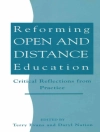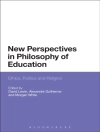Forced displacement, statelessness, and the omnipresence of asylum seekers and refugees—innocent people uprooted from their homes by war, climate change, natural catastrophes, economic collapse, terrorism—have been one the most challenging problems for the international community for several decades. Only in 2019, almost 1, 900 environmental catastrophes caused almost 25 new internal displacements in 140 countries and territories, according to the Norwegian Refugee Council. This number is three times larger than the displacements as a result of conflicts or violence. As a result, the UNHCR (United Nations High Commissioner for Refugees), the lead international United Nations agency coordinating refugee protection, continues to struggle to deal with so many simultaneous dire situations worldwide. But rather than organizations such as UNHCR, governments have the power to make a difference with their empathy and generosity.
The COVID-19 pandemic, which has worsened the situation for refugees worldwide, has also brought crises (such as collapsed supply chains) to the West that are, unfortunately, common in other areas of the planet. In fact, there is a lot to learn about crisis management and resolution from these non-Western experiences of epidemics, natural catastrophes, war, and other extreme situations in refugee camps all over the world.
The essays in this volume will study the concept of refuge as well as historical forced displacement and statelessness, trying to provide potential lasting solutions to the many problems associated with this situation. This volume is not only timely but expansive, as it moves from the pressing crisis of refugees to the crisis of humanity that seeks to find refuge.
Inhoudsopgave
Introduction, Ignacio López-Calvo and Marjorie Agosín; PART ONE HUMANITY AND HUMAN DISPLACEMENTS, Chapter One; Chapter Two; PART TWO SEEKING REFUGE, Chapter Three; Chapter Four; Chapter Five; Chapter Six; PART THREE ACTS OF CREATING REFUGE, Chapter Seven; Chapter Eight; Chapter Nine; PART FOUR APPROACHES TO CONSTRUCTING REFUGE, Chapter Ten; Chapter Eleven;Chapter Twelve; Chapter Thirteen; Index
Over de auteur
Marjorie Agosin is a poet and human rights activist with a long career dedicated to the themes of social justice.
Ignacio López-Calvo is UC Merced Presidential Endowed Chair in the humanities and professor of Latin American literature. He is the author of eight monographs.












